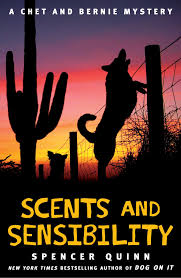One of the first books I found in the town library was Pumla Gobodo-Madikizela's A Human Being Died that Night, and I was awestruck. Gobodo-Madikizela worked for South Africa's Truth and Reconciliation Commission, and as part of her efforts she agreed to interview Eugene de Kock, whom the South African media had nicknamed 'Prime Evil' for his role as leader of a police task force that targeted anti-apartheid activists with kidnapping, torture, murder and more. Her book is about what she learned from him, and about herself, and about trauma and forgiveness. For me it was mystifyingly uplifting. I was reluctant to read it, but the jacket blurb drew me in and Gobodo-Madikizela's writing captured me. She relates an extraordinary experience, and her varying response to it, as she feels fear, horror, sympathy, contempt and empathy for a very ordinary man who committed extraordinary atrocities in service of his people, his god and his state. He thought. He maybe was changing his mind as he worked with the TRC and testified, and got convicted with two life sentences plus 212 years in prison. Many higher authorities in the apartheid regime were never charged or sentenced at all. (De Kock was granted parole last year.) This book is astounding.
In a very different vein, in July I received Spencer Quinn's latest in the mail -- Scents and Sensibility. (How wonderful to have an obsessive sister and compulsive brother-in-law who truly understand me.) This is the eighth in Quinn's Chet and Bernie series of mystery novels told by a dog detective, Chet, who works with a human detective, Bernie. Quinn's rendition of Chet's voice is exactly what I think most of the dogs (especially the big ones) I have known would sound like if they were tracking perps (and javelinas, with their 'pesky tusks', and pizza crusts and kidnapped elephants) through the Arizona deserts. He cheerfully acknowledges he doesn't do well with numbers above two, praises Bernie's beautiful big, dented nose and occasionally is quite surprised to find that somehow the upholstery's gotten chewed, or Bernie's accelerator foot's been nudged. Funny and wonderful and the good guys usually, mostly, win in the end.
I brought Dorothy Gilman's Uncertain Voyage with me. This is a precursor to her popular Mrs. Pollifax spy series, and concerns a young American woman using a European tour to celebrate and cement her recovery from depression in the mid-1960s, when people admitting depression were rare and uncertain. Melissa gets, quite accidentally, involved with what may be international espionage, with a possibly-heartless but often sympathetic playboy, and with her own demons as she travels through Copenhagen, Paris and Majorca. Her voyage is one of discovering her own value to herself, and her will to live. I found it in the library in 2013, a year of disconcerting change for me, and had to seek out a copy for myself. It really resonates in valuable ways as I set about changing my life up a bit.
L. gave me a copy of Chimamanda Ngozi Adichie's The Thing Around Your Neck shortly before I left the U.S., and I read these lyrical short stories about Nigerians at home and abroad in my Jersey cottage, on the plane and in Okahandja at PST. Then I passed it along to F., who has since passed it to others. When I found her Half of a Yellow Sun on the library shelf, I took a deep breath and ploughed into it. The Biafran conflict, and the world's response to it, was horrifying, and this story of a half-dozen or so mostly middle-class Nigerians negotiating it and its physical, emotional, political and psychological tolls offers a chance to understand conflict and its consequences in a profoundly human and humane way. Does that sound pretentious? Maybe just: It's terrible but beautiful, true and worthwhile.
The library, and the PCV exchange, has also yielded old favorites Wodehouse, Sayers and Scottoline (no Heyer?!), lots of Mills and Boon, Chuck Palahniuk's interesting Invisible Monsters, an odd Harlan Coben (all Coben is odd), and a bunch of John Le Carré, whom I find immensely depressing though I like the Karla trilogy and was drawn deeply into The Little Drummer Girl, with all its horribly dismal, realpolitick moral quandries and equivocacies. Worth a read, though! Whatever else you do in life, may I strongly recommend you steer well clear of a 2011 Harlequin Romance called The Reluctant Princess. Oh, my stars. To think someone got paid for that.






No comments:
Post a Comment